
Contributed by: Susan Posey, Redeemer Lutheran, McLean
Many people set aside time in their day for prayer, reflection, or meditation, and there are so many wonderful resources for this type of daily grounding. One such resource is the Daily Lift, a daily audio reflection provided on-line by the Christian Science Church.
This week, I was blessed to hear a Daily Lift offered by Lois Herr, who is a local Christian Science Practitioner and Teacher, an active member of Tysons Interfaith, and my dear friend. In this segment entitled No such thing as “all by myself,” Lois shares an experience from her own life that illustrates her belief that by consistently turning to God for guidance, one can come to the spiritual reality that God’s care is always ready to appear in ways that we can understand.
The Daily Lift is comprised of audio presentations contributed by Christian Science church members worldwide – with the majority coming from the U.S. This particular “Lift” will remain on the website for thirty days before being retired.
As my friend Lois would say, “may this segment bring you peace and encouragement.” It did so for me.
This blog post is the expressed opinion of its writer and does not necessarily reflect the views of Tysons Interfaith or its members.
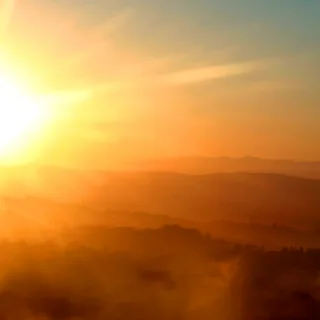
Contributed by Stephen Wickman, St. Thomas Episcopal, McLean
Sometimes, when I have trouble sleeping, I listen to the BBC. A recent segment entitled Mary’s Pain, a Lenten Talk offered by Dr. Selina Stone, touched me deeply.
Dr. Stone uses the period of Lent to come to terms with grief and loss she experienced in the untimely death of her mother to cancer. She shares Mary’s story as encouragement to all who mourn or struggle with the large problems facing our world.
This particular offering was first broadcast on March 11 and will be available for twenty-seven days.
As Christians prepare to enter holy week, may it offer anyone who cares to listen, peace.
This blog post is the expressed opinion of its writers and does not necessarily reflect the views of Tysons Interfaith or its members.
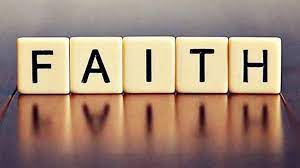
Contributed by Stephen Wickman, St. Thomas Episcopal, McLean
“The mind is involved in religion, but in more subtle ways. Christian traditions have many objects, rituals, and gorgeous buildings that create a spiritual atmosphere that helps the heart along. Judaism is perhaps the most embodied religion of all, requiring hundreds of specified obligations and actions governing dress and food, marital relations and business dealings, even the structure and society of prayer. In the Jewish tradition these are not separate from but an expression of a covenantal relationship with the creator of the universe.”
As we move further into Ramadan and Lent, I was struck by this message that came into my inbox. The author (Johnathan Silver, the author of Mosaic Magazine) takes issue with those who “have a very abstracted view of what religion is and the role it plays in human life,” and seem to believe: “The key to religious devotion is the acceptance of a tenet of faith.”
Nothing could be further from the truth.
To read the article in full, please visit:
https://manage.kmail-lists.com/subscriptions
This blog post is the expressed opinion of its writers and does not necessarily reflect the views of Tysons Interfaith or its members.
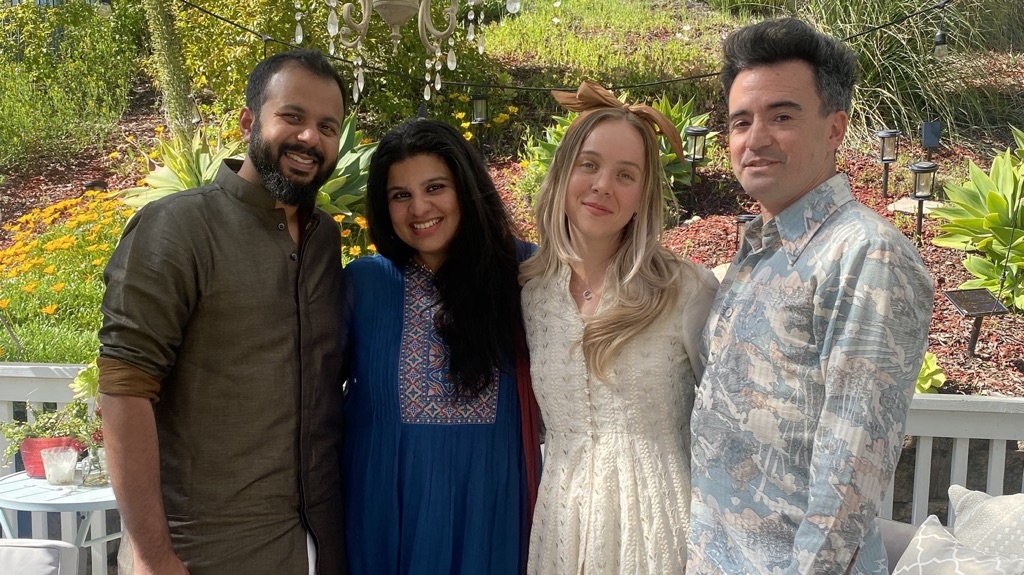
Contributed by Stephen Wickman, St. Thomas Episcopal
I received this beautiful message from NPR highlighting their listeners prayers this Ramadan, which begins today or tomorrow, depending on the sighting of the new moon in Saudi Arabia. https://www.npr.org/2024/03/10/1237049818/ramadan-prayers-2024-eid-muslims-peace-gaza-empathy. This is a powerful reminder to non-Muslims everywhere of the humanity and spiritual depth of Islam as practiced in our great nation today, and I hope everyone will take a moment to reflect on what our Muslim neighbors are saying.
My son was born in Riyadh, where I worked in the U.S. embassy, so I have very fond remembrances of the kingdom. As a non-Muslim, I could not visit Mecca and Medina, but I could share in the daily call of the muezzins and the deep spirituality of this most sacred season.
I hope you will join us in celebrating this most holy month of fasting, prayer, and fellowship,
This blog post is the expressed opinion of its writers and does not necessarily reflect the views of Tysons Interfaith or its members.
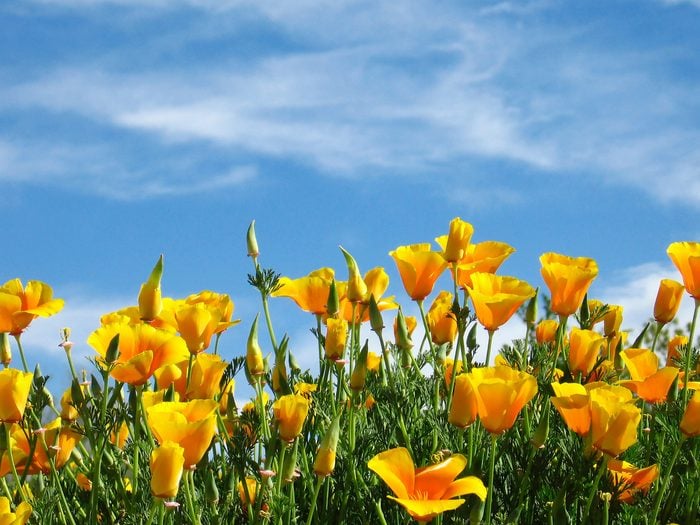
Contributed by Vicki Nelson, Temple Rodef Shalom, Falls Church; Susan Posey, Redeemer Lutheran, McLean
Spring 2024 is marked by religious observations for people of many different faith traditions. We are a nation founded on the principle of religious freedom and we celebrate that the First Amendment to the US Constitution ensures that everyone has the right to practice their own religion – or no religion at all.
But this spring, we also mourn for all who are so horribly impacted by war and violence – in the Middle East, Sudan, Ukraine. And we witness with concern deep divisions and distrust even in our local communities.
So, as we observe the sacred days of our various faith traditions, may we be joined in a prayer for peace. May we acknowledge the sacred value of each life and the rights of all people to safety and well-being. And when we feel powerless and overwhelmed by events in the world and here at home, may we redouble our efforts to love our neighbors and treat one another with the dignity, compassion, and respect we all deserve.
The following is a summary of some of the rich and varied holy days being observed in the coming months. We hope you will read each brief piece, knowing that education is the road to understanding.
Spring 2024 Religious Observations:
Lent (Christian). February 13:
Beginning on Ash Wednesday, Lent is the forty weekdays leading up to Easter. It is a time dedicated to repentance, reflection, and deepening of one’s relationship with God in preparation for Easter.
Ramadan (Islam). Begins March 10:
Ramadan occurs during the ninth month of the Islamic lunar calendar. It lasts twenty-nine or thirty days, depending on when the new crescent moon is visible. This period of fasting and spiritual growth is one of the five Pillars of Islam. It is the prevailing belief among Muslims that it was in the last nights of Ramadan that the Holy Quran was revealed to the Prophet Muhammad. In addition to daily fasting, Muslims participate in daily prayer, reflection, study of the Quran, and community.
Naw-Ruz (Baha’i). March 19-20:
Naw-Ruz, the Baha’i New Year, coincides with the spring equinox and is an ancient Persian festival celebrating the “new day.” For Baha’is it marks the end of the annual nineteen-day fast and is one of the nine holy days of the year when work is suspended.
Purim (Jewish). March 23-24:
Purim is a joyous Jewish holiday, celebrated in costume with noisemakers and merriment. The full story can be found in the Book of Esther, the 24th and final book in the Hebrew Scriptures. The story, which is purely fantastical and not based on any historical event, is about a king ruling in Persia. The king is fooled by his royal vizier, who wants to take revenge on a Jew who refuses to bow down to him. The king signs an order that all the Jews in the kingdom are to be killed. The heroine, Queen Esther the king’s wife, learns of the plot, uses her position to turn the tables and the villain is killed and the Jews are spared. Jews use this occasion to exchange gifts of food and drink, give charity to the poor, eat a celebratory meal, and participate in a public reading of the Book of Esther.
Holi (Hindu). March 25:
This Hindu holiday occurs on the full moon of the month of Phalguna on the Hindu calendar. It is also known as the Festival of Love, Spring and Colors. It is a celebration of the divine love of the deities Radha and Krishna, and good over evil. The evening and day celebration is known for its bonfires and for the joyous throwing of colored powder and powder solutions by Hindus and non-Hindus, alike. The arrival of spring is celebrated, and people have the opportunity to repair broken relationships.
Easter (Christian). March 31 (Note — Eastern Orthodox Easter is May 5):
On the Christian Liturgical calendar, this day is “The Resurrection of our Lord.” It is one of the central holy days of Christianity. Christians believe that on this day, Jesus Christ, who was crucified on “Good Friday” was resurrected from the dead, thus conquering death and sin. It is the joyful conclusion to the Lenten season of prayer, fasting and reflection.
Eid al-Fitr (Islam). April 9-10:
Eid al-Fitr marks the end of the fasting season of Ramadan. It is typically celebrated by a large community-wide prayer service, at which charitable donations are collected, followed by meals and conversation with family and friends.
Baisakhi (Sikh). April 13:
Baisakhi is the highest celebration for Sikhs. It is a time of rededication and renewal of faith. Many people take part in a special baptism to become Khalsa (or pure ones) at this blessed time of year.
Festival of Ridvan (Baha’i). April 21 – May 3:
This annual Baha’i festival commemorates the twelve days when Baha’u’llah, the founder of the Baha’i Faith, publicly proclaimed His mission as God’s messenger for this age. The first day, the ninth day, and the twelfth day are celebrated as holy days when work is suspended.
Passover (Jewish). April 22-30:
Passover is a major Jewish holiday that occurs in the spring and is one of three pilgrimage holidays. Celebrated for seven or eight days depending on which denomination of Judaism you participate in; it marks the Israelites’ escape from Egypt and their slavery under Pharoah. This is another Jewish holiday dealing with the theme of freedom. The story, told around the Seder table on the first two nights of the holiday, comes from the Book of Exodus. The celebration is marked by the commandment in Exodus 12:15 that you shall eat unleavened bread, which we know as matzah, for the duration of the holiday.
Vesak (Buddhist). May 23:
The biggest and most important holiday celebrated by all Buddhist schools is called Vesak (Vesakha), or Enlightenment Day. All Buddhist schools agree it’s the Buddha’s birthday. On Vesak Day Buddhist temples are decorated with flags and flowers, and devotees assemble in temples for ceremonial rituals. To honor the day, Buddhists aspire to practice love, peace and harmony by participating in volunteer and civic activities that benefit all humanity.
This blog post is the expressed opinion of its writers and does not necessarily reflect the views of Tysons Interfaith or its members.

Contributed by Stephen Wickman, St. Thomas Episcopal, McLean
One reason I belong to St. Thomas Episcopal Church is because our patron saint – known popularly as “Doubting Thomas” – reflects the broad theology of the Anglican Communion, particularly its American counterpart. Our conceit is that we uniquely straddle reformed and non-reformed Christian traditions, which is probably an unfair exaggeration, but I was reminded of this during the kickoff of a new, bi-weekly McLean tradition: “Pints with Doubting Thomas.”

The subject was “theodicy” or the problem of evil” — perhaps the biggest stumbling block to religion for many non-believers. How can a God whom we describe as supremely loving and good allow suffering and evil to exist? Or as Rabbi Harold Kusher asked in a best-selling book from 1981: what do we do “When Bad Things Happen to Good People”? https://a.co/d/hUGaInQ
Our Assistant Rector and Parish Administrator gave four answers to this dilemma, which I must admit would not perplex an atheist. First, is the idea of a “perfect plan,” which stems from the Calvinist doctrine that everything, including suffering, is part of God’s plan. Second, is the doctrine of “free will,” the dominant non-reformed view that a world of free choice is better than a world of slavish devotion and that we must have the capacity to make good or bad choices, some of which lead to suffering, etc. Third, is the idea of “spiritual warfare” between Satan – the cause of all evil and suffering – and God, who will win in the end with the help of his recruits. Finally, there is “soul-making,” the idea that although God knew free will would lead to suffering, God intends us to become better and more complete as we grow out of this purposeful and instructive suffering.
Rabbi Kushner, struggling with the loss of his own son to a horrible, debilitating disease, gravitates toward the soul-making view. “I would say that God may not prevent the calamity, but He [sic] gives us the strength and perseverance to overcome it.”
Whatever your perspective, I invite you to join us next Wednesday, March 13, to continue the discussion. This time we will consider less traditional theodicies, including anti-theodicy (the idea that we should not attempt to defend God in the face of evil). If all this sounds a bit esoteric, it goes down much better with good company and a pint of ale.
This blog post is the expressed opinion of its writer and does not necessarily reflect the views of Tysons Interfaith or its members.
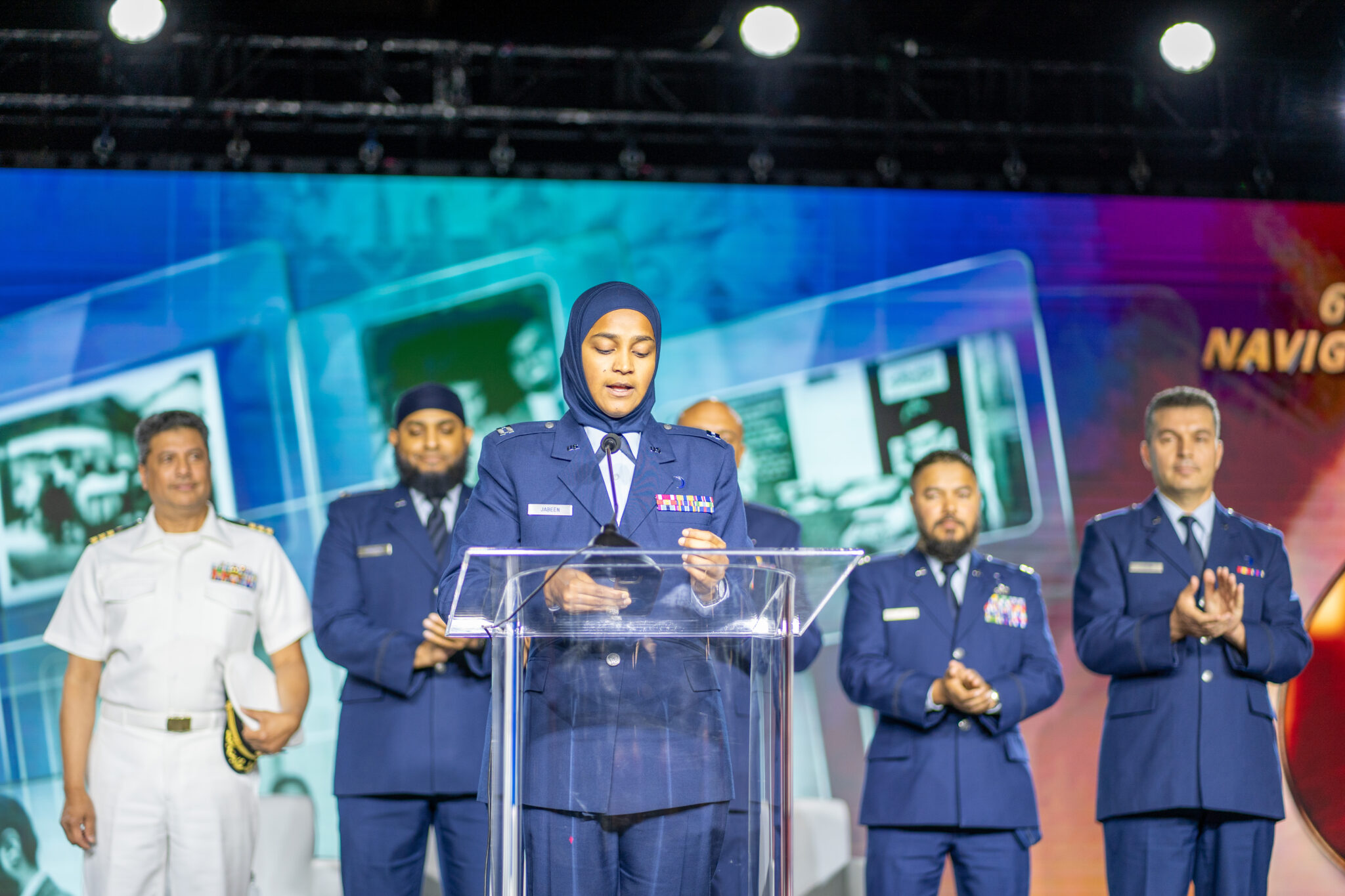
Contributed by Yerusalem Work
The following is an excerpt from an article published on Islamic Horizons. To read the article in its entirety, please visit: https://islamichorizons.net/chaplains-can-help-change-lives/.
“We live in a mostly secular world that may have lost its connection to the divine,” said Tahira Wellman, a chaplain at New Jersey’s Hackensack University Medical Center. She’s the only Muslim chaplain in its pastoral care department.
Yahya Hendi, the first full-time Muslim chaplain at an American university, was hired in 1999 by Georgetown University. Due to its small Muslim student population, Hendi, who was chosen to enlighten non-Muslims about Islam, has focused on the interfaith community.
Muslim chaplains work in hospitals, universities, prisons, and many other settings. Mutahhir Sabree (administrator, the Distance Learning Prison Initiative) works to provide free courses in Islamic Studies to inmates nationwide. Interacting with more than 3,000 male and female inmates, he teaches and prays with them, as well as encourages them to identify with the prophets of Islam and the multitude of spiritual stories in the Quran, such as the lives of prophets Yusuf and Ayyub.
Muslim chaplains enter the profession from a variety of routes. Some pursue a seminary degree; others travel to the Middle East and North Africa for a deep dive into Arabic studies and to obtain authentic traditional knowledge of the Quran and Sunna. Some begin as volunteers, while others are trained in pastoral care. Whatever the route, these individuals can play a vital role in the lives of knowledge seekers — both beginners and advanced.
The Islamic Society of North America (ISNA)’s active chaplaincy program is dedicated to offering services to Muslim chaplains through endorsement, education and training, and leadership development. This program endorses chaplains serving in the Army, Air Force, Navy, prisons, hospitals, universities and other institutions. ISNA honors them by qualifying them to offer care, spiritual guidance, support families in times of grief and loss, ensure religious freedom and offer similar services.
One of this profession’s foremost benefits is the privilege of representing Islam in mainstream American society. As an ambassador for Islam and a professional chaplain, you’ll have the opportunity to share and exchange your Islamic life experiences with colleagues from multiple faith or even non-faith backgrounds in a very collegial and non-threatening manner. If you’re interested in becoming a chaplain, complete the application process on ISNA’s website: https://isna.net/chaplaincy-services/.
Yerusalem Work, a creative writer and the membership director of the Congregational Library Association, has a heart for interfaith dialogue and is a passionate community builder. A holder of a master’s degree in library science and prolific author, she regularly blogs and self-publishes her writing. Her short stories and poetry have been published in Muslim Matters and Tysons Interfaith. She considers it an honor and a pleasure to write on Islamic themes.
This blog post is the expressed opinion of its writer and does not necessarily reflect the views of Tysons Interfaith or its members.
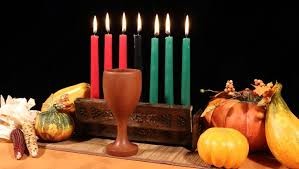
I attended a recent holiday choral concert, during which I was introduced to the principles of Kwanzaa (this year, December 26 through January 1, 2024). One of those principles is Nia – purpose. The Northern Virginia Chorale sang a beautiful hymn composed by Glenn Burleigh questioning our purpose as human beings created by God. I found the questions and conclusions of this hymn to be quite moving.
“Why was I born? Why was I born?
Was I born to feed hungry children, or to give shelter to the homeless?
Was I born to be my brother’s keeper, companion to the lonely?
I was born to love the Lord with all my heart, my soul, my mind, and strength.
If I love God I can love all people.
This is my purpose. Nia.
Why was I born? Why was I born?
Was I born to preach the Gospel, or to care for aging parents?
Was I born to help the unwed mothers or council the pris’ner?
I was born to love the Lord with all my heart, my soul, my mind, and strength.
If I love God I can love all people,
If I love all people, I can love God!
This is my purpose.
This is why I sing my song.
Nia, Nia, Nia.”
Preparation for and celebration of the December holidays is an opportunity for personal reflection and contemplation. I am asking “what is my purpose during this holiday time” and the larger question: “what is my purpose in life going forward?” This song suggests that loving God and loving all people is my purpose.
This blog post is the expressed opinion of its writer and does not necessarily reflect the views of Tysons Interfaith or its members.
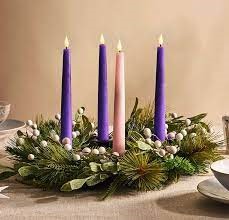
Over the last few weeks, these words have become my daily prayer: “Let there be peace on earth.” With the war in Ukraine entering its twenty-first month and the war in Israel and Gaza expected to continue into the new year, the loss of lives and the displacement of people have been overwhelming. In places like Myanmar and Sudan there is constant civil unrest that affects the innocent. Conflict has become the norm rather than the exception even in our own country. And yet it is in our current context that Christians enter the Advent season (December 3 through December 24) to prepare ourselves not only for the celebration of the birth of Jesus Christ but for his Second Coming.
Advent comes with four major themes to meditate upon – peace, hope, joy, and love. This is a reflection on peace.
For those of us who are older (smile), the title of this article should sound familiar. It comes from a well-known Christmas song that was written in 1955 by Jill Jackson-Miller. She wrote the lyrics and her husband, Sy Miller, wrote the melody.
Let there be peace on earth, and let it begin with me.
Let there be peace on earth, the peace that was meant to be.
With God, our creator, family are we. Let us walk with each other in perfect harmony.
The song was introduced at a retreat center in California for a group of young people who were from a wide variety of religious, ethnic, and socioeconomic backgrounds. They were there for a week-long experience to develop friendships with people who held different views from their own. They attended educational seminars that enabled them to learn the skills they needed to have open and healthy discussions on difficult topics. By the end of the week, it was the hope that they would be able to work together. It is in this setting that this song was introduced. It turned out to be a perfect ending to an amazing week. Once the young people learned the lyrics, they got up, locked arms, formed a circle, and faced each other as they sang this song of peace. It is a simple song with a powerful message that has been recorded and translated and sung all over the world.
In the Old Testament, the word for peace is shalom which is derived from a root word that means wholeness or completeness. In the Bible, it has less to do with the absence of war and conflict and has more to do with our overall well-being. When someone says they are at peace, they are letting us know that they are content even when in the middle of a hardship or struggle. They know (truly know) that God is with them. It has the same connotation in the New Testament. Jesus expresses the idea that peace comes from peacemakers and true peacemakers are characterized by their poverty of spirit, their ability to mourn for their broken world, and for their hunger for healing and reconciliation.
Too often we restrict our thoughts about peace as simply the end of conflicts. Certainly, an end to violence is something that we should pray for in Ukraine, the Middle East, in our community, and even in our homes. But it seems like the peace that is talked about in Scripture is more than the absence of something negative. It has its own presence and energy. It is a gift from God that occurs when we turn over to God a certain amount of control of all the things that we worry about. We do not surrender responsibility, but we recognize limits as to what we can affect or achieve on our own. And once we acknowledge our limits, we place ourselves and others in the hands of God. And God’s response is to give us peace, a peace that allows us to look up and see the gifts around us and not just the troubles that consume us.
People of good will long for peace. But our human experience tells us that peace on earth is elusive. In contrast, the peace of God comes to us as pure gift through God’s grace alone. We release our grip on all the things that we are trying to hold together on our own, and in return God gives us a sense of well-being that can only come from God.
During this Advent season, I will continue to pray, “Let There Be Peace on Earth.” Peace among the people of the earth and peace in our hearts as we entrust the burdens of this world to our creator.
This blog post is the expressed opinion of its writer and does not necessarily reflect the views of Tysons Interfaith or its members.
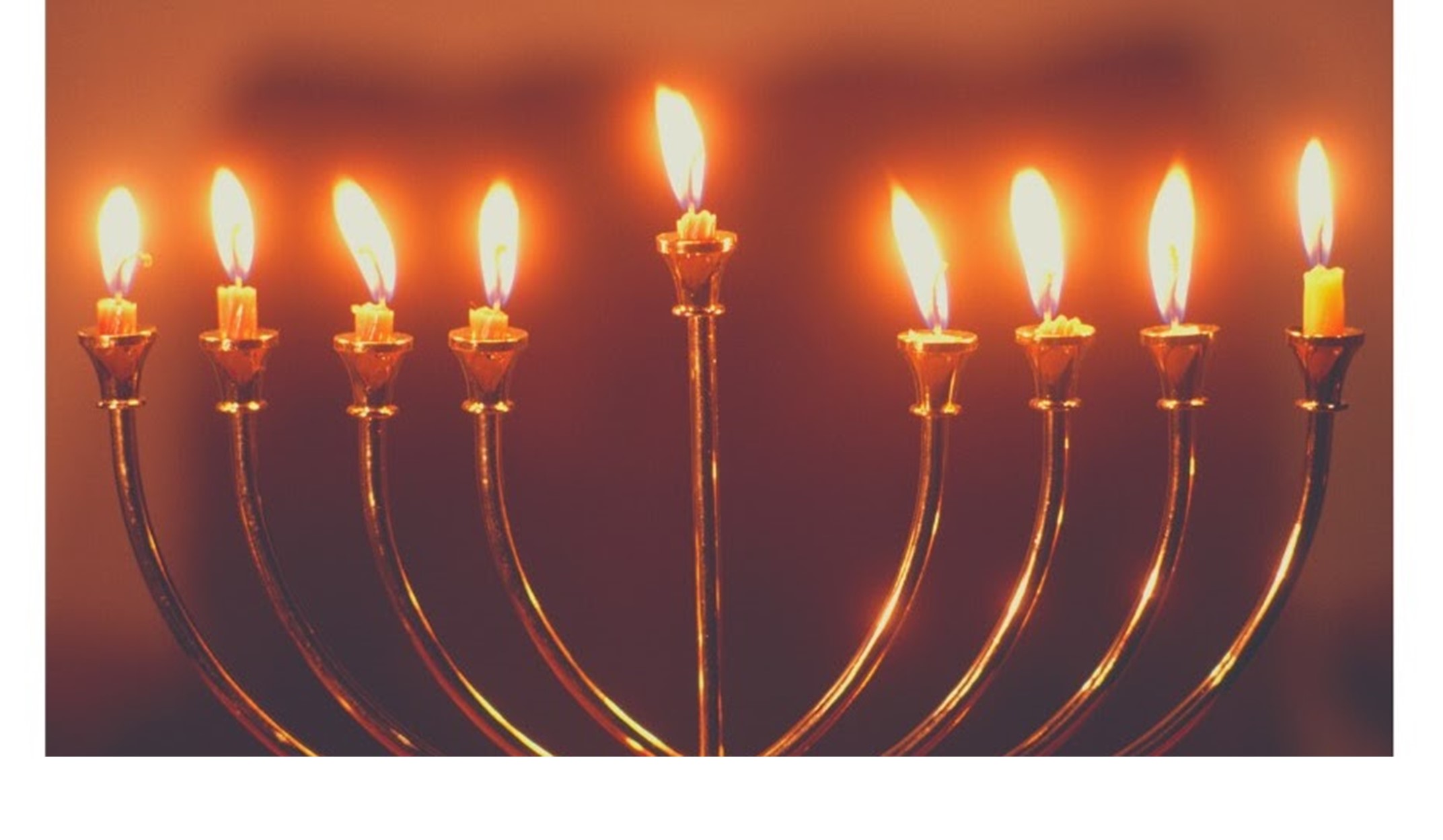
On Thursday, December 7th at sundown, Jews all over the world will begin the celebration of the eight-day festival of Chanukah with the lighting of the first candle on the menorah. The celebration this year will not be the same, as war rages in Israel and Gaza and its repercussions are felt around the world, including of course in our communities.
What is very important to remember in a time of watching the rise of antisemitism all over the world, with a 388% increase in incidents in the United States since October 7th over the same time period last year, is that this holiday celebrates the victory of religious freedom – a cause, unfortunately, still being fought for by millions of people the world over. We must note that Jews are not alone, there has also been a significant increase in anti-Muslim hate incidents.
We are living in very dark times. Wars and hatred spread across the face of the earth, and many in the name of religion. As we begin this holiday season, with many religions celebrating, let us not forget the world is large; there is room for everyone to worship as they choose and not live in fear.
Perhaps we can use the light of this holiday to ask for the wellbeing and safety of all people, regardless to whom they address their prayers.
This blog post is the expressed opinion of its writer and does not necessarily reflect the views of Tysons Interfaith or its members.
